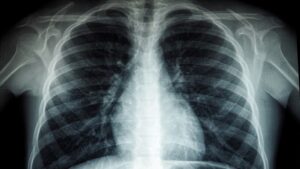[ad_1]
HEALTHY NUTRITION WHY?
Nutrients are needed in the human body to perform daily functions. Consumed foods constitute the energy source required for physical activity and biological functions in the body. There are three basic nutrients in the foods we eat. These are carbohydrates, proteins and fats.
In addition to these three basic groups, which are called macro nutrients, vitamins and minerals, which are micronutrients, are other components taken into the body with nutrients.
It is very important to fully meet the requirements for vitamins and minerals for the smooth functioning of the digestive, respiratory, excretory, respiratory, circulatory, nervous, skeletal and muscular systems, the healthy production of hormones and body secretions, and the continuation of motor skills and cognitive functions in a healthy way. has significance. In addition, maintaining the order of many systems in the body, especially the digestive system, is only possible with the implementation of a healthy and balanced nutrition plan.
In the most basic sense, healthy nutrition is the type of nutrition that contains all macro and micro nutrients in the amounts that the person needs, at the same time fully meets the amount of energy needed by the individual, and is suitable for maintaining the ideal weight.
Since each individual’s body composition, age, gender and health status are different from each other, there is no single list that can be defined as a healthy eating program. Although the general rules are clear, the healthy nutrition list should be prepared by a dietitian for the person.
WHAT ARE THE PROBLEMS THAT CAN BE SEEN DUE TO UNHEALTHY NUTRITION?
Many of the chronic diseases that are frequently seen in the world are in a direct relationship with nutrition. In addition, there is an increase in the risk of the emergence of many acute diseases, especially unhealthy and unbalanced nutrition and infectious diseases.
The most common health problem related to nutrition in our country and in the world obesityis Obesity, which is an advanced dimension of overweight; It is one of the most important risk factors for many diseases such as cardiovascular diseases, diabetes, hormonal diseases and metabolic syndrome.
Malnutrition, which occurs in unhealthy, unbalanced or malnutrition, is the medical language. malnutrition is called.
Some of the common health problems associated with malnutrition include:
– Vitamin and mineral deficiencies
– Weakness
– Thyroid diseases
– Infertility
– Growth and developmental retardation
– Frequent infections
– Forgetfulness, difficulty concentrating and confusion
– Fatigue and weakness
– Anemia (anemia)
– Disturbances in organ functions
– Bone and joint diseases
– Muscle wasting (sarcopenia) and decreased muscle strength
– If unhealthy, unbalanced, inadequate or excessive nutrition continues for a long time, health problems that can become much more serious and progress to death may occur.
WHY IS HEALTHY NUTRITION IMPORTANT?
Protein, carbohydrate, fat, vitamins, minerals and dietary fibers should be taken into the body in sufficient quantities together with the nutrients in order to maintain the body functions in a healthy way. For this, each type of food should be consumed in sufficient quantities and in moderation.
Proteins: Proteins are also called constructive and restorative food groups and are the most common nutrient in the structure of the human body.
The protein requirement must be fully met in order to support mental and cognitive functions, to perform motor skills and to produce the necessary energy, to maintain the production of immune system elements and blood in a healthy way, and to perform many other functions.
Protein, which is found in varying proportions in plant and animal foods, increases the amount of protein required for healthy nutrition in young people, especially in physically active people and athletes, while the amount of protein that should be taken with food decreases in individuals with a sedentary lifestyle and in liver and kidney patients.
Carbohydrates: Carbohydrates, which are the main energy sources of the body; It is found mostly in cereals, legumes and fruits.
While taking care to fully meet the carbohydrate needs of individuals who want to eat healthy, they should be met from complex carbohydrates (whole grains, legumes, etc.) with high fiber, vitamin and mineral content instead of refined sugar and purified grains. In this way kilo At the same time, fluctuations in energy and mood can be prevented and blood sugar can be kept under control.
Oils: Fat, another nutrient, is one of the food groups most associated with weight gain and should be consumed in moderation. However, the amount of fat needed by the body must be fully met from healthy sources in order to maintain the body functions without any problems and especially to protect the hormonal balance.
Animal-derived fats and processed oils such as margarine should be avoided as much as possible, and care should be taken to consume fish containing olive oil and omega 3 fatty acids instead.
While the fat requirement is met, it is not just the fats added to the foods; It should not be forgotten that there is a significant amount of fat in the structures of foods such as meat, milk and fish.
Follow NTV on social media
[ad_2]
Source link






